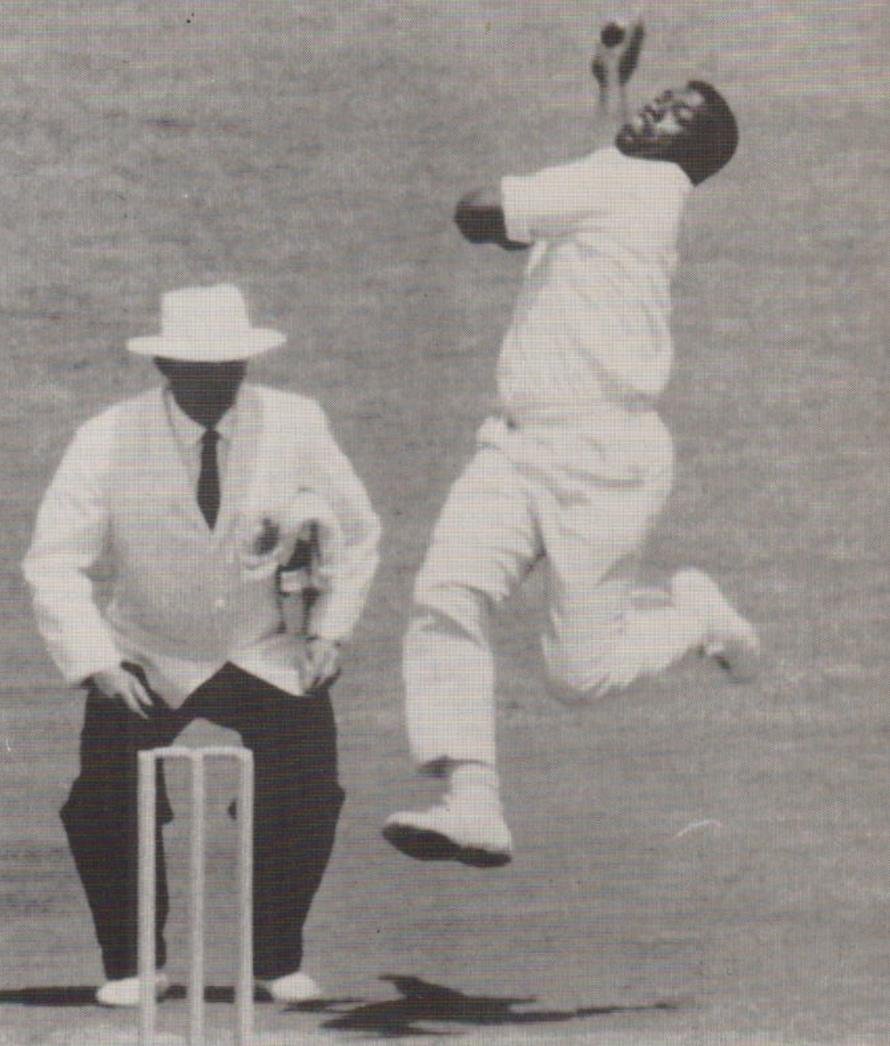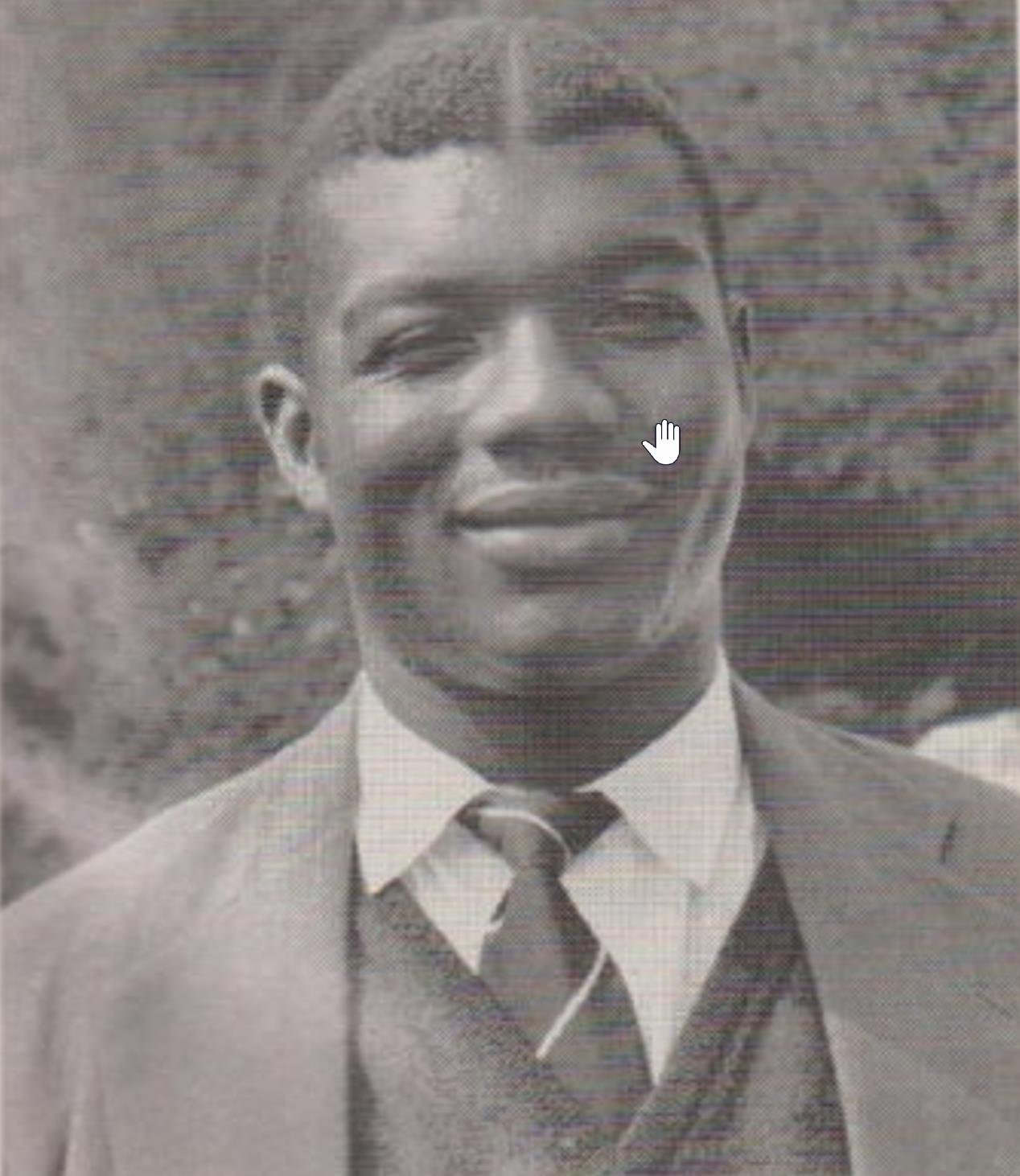Paul Spencer remembers the year when the name Burnley made proud men quake in their boots and interviews the purveyor of that fear, Charlie Griffith.
The small industrial town of Burnley, nestled comfortably in the Pendle Valley, is not usually a place that is visited by superstars. All that changed though in the spring of 1964—a time when the Beatles were swinging their way across the decade and even teenagers from culturally repressed cotton towns were breaking free of old traditions. Charlie Griffith, the fearsome West Indian paceman, had been signed by the town’s cricket club, and to this day he remains Burnley’s most famous signing.

S. F. Barnes played for the club around the turn of the century; Lance Gibbs, a year before Charlie Griffith, and more recently, Mudassar Nazar have served with distinction. However, no one quite had the aura that surrounded Charlie Griffith , partly because of his awesome physique but mainly because of the ‘hit man’ reputation that was attached to him.
He terrorized amateur batsmen throughout the Lancashire League to such an extent that many made sure they booked their annual holidays to coincide with their sides ‘appointment with fear. While partygoers were twisting the night away, League batsmen were also perfecting their dance routine as Charlie Griffith came thundering towards the crease, although the ‘Square Leg Shuffle’ is unlikely to find its way into any dance manuals!
As a player for the past decade, I’ve always been fascinated by his exploits at the club, and it was an honor to get a chance to talk to him. I asked him what his first impressions were when he arrived. “Well, to be quite honest, I wasn’t too impressed. I couldn’t believe how cold it was. Early in the season, my fingers were so numb that I was unable to tie my bootlaces.” Charlie Griffith went on: “Even in early May, there was snow on the hills, and I wondered what sort of place I’d come to. Gradually though things got better and I began to like the place. The people were so friendly and I made a lot of friends.” As the season went on, Charlie Griffith left behind him a trail of shattered stumps and broken.
Eventually, he finished with an unbelievable 144 wickets from just 26 matches, and it is testimony to his accuracy that 93 of his victims were bowled and another ten fell leg before. These figures therefore undermine the long-held opinion, mainly from other clubs – that he obtained his wickets by generally bowling short. I asked what he thought of the criticism he received about his uncaring attitude toward the batsman’s welfare. “I never went out to hurt anyone, but Burnley had paid me to do a job, and so I pulled out all the stops to perform to the best of my ability. “I usually tried to beat the batsmen with pace through the air, a lot of yorkers, and think that the figures back me up on that score.”
Present Burnley skipper Roger Law, then a 16-year-old with Backup, remembers his encounter with Griffith vividly. “My turn had come because our professional, Basil Butcher had taken a terrible blow on the jaw. The impact was so hard it forced his bottom front teeth through his lips. So I was taking. strike in a pool of blood!
“I remember thinking as Charlie started his run, if he can do that to one of the best players in the world, what’s he going to do to me?” In those days, of course, protective equipment was minimal; indeed, even a thigh pad was considered something of a luxury. Rarely a match goes by without the giant West Indian taking seven, eight, or even nine wickets.
Paul Spencer Accrington was swept aside for just 26, and the championship was assured by mid-August. Some amateurs had a moment of glory against Griffith, although usually their bodies, decorated with assorted bruises, paid the price. Charlie was less successful in his second season at Burnley in 1967, but no one could have followed what he achieved three years before, and his wicket haul that summer will surely stand as a record forever. Back home in Barbados, he is still heavily involved in cricket.
He is a Test selector, a member of the Board of Barbados Cricket, and still finds time to combine all those activities with a job as sales manager of a timber firm. As I thanked Charlie Griffith for his time and shook his hand, I couldn’t help thinking what an experience it would have been to open the batting, look up, and see him in the distance pacing out his run his shirt sleeves rolled to the elbow, hair plastered to his head and parted in the center, a heavy pair of boots pawing at the ground, and his great hands armed with a hard, shiny ball. I, for one, am glad that thinking about it is all I need to ever do!
